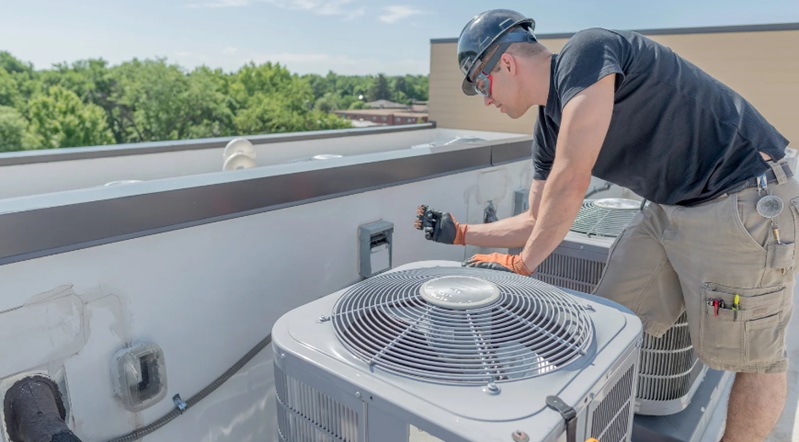As winter temperatures drop, the risk of frozen pipes increases, especially in areas where freezing weather is common. Taking steps to protect your plumbing from extreme cold is essential, and HVAC in Dunwoody offers valuable solutions to prevent freezing pipes. Whether you’re preparing your home for winter or already experiencing colder temperatures, understanding how HVAC management can help avoid frozen pipes is key to keeping your home safe and comfortable.
The Dangers of Frozen Pipes
Frozen pipes pose significant risks, both financially and structurally. When water inside pipes freezes, it expands, which can lead to cracks or bursts. Even a small crack in a pipe can release hundreds of gallons of water into your home, resulting in costly water damage and possible mold issues. Fortunately, a well-maintained HVAC system can help regulate indoor temperatures and prevent pipes from reaching freezing points.
Properly managed HVAC systems help maintain consistent indoor temperatures, preventing frozen pipes during freezing weather. Here’s how proper HVAC care can help you avoid winter plumbing disasters:
- Set Consistent Thermostat Temperatures
One effective strategy to prevent frozen pipes is setting a consistent thermostat temperature. Keep your thermostat at a minimum of 55 degrees Fahrenheit, even when you’re away. This temperature setting ensures your home remains warm enough to protect pipes from freezing. Additionally, upgrading to a smart thermostat can allow you to monitor and adjust temperatures remotely, adding an extra layer of security.
- Seal Air Leaks Around Doors and Windows
Heat loss through gaps in doors, windows, and other areas can reduce indoor temperatures, leading to cold spots where pipes are more likely to freeze. Sealing air leaks not only conserves energy but also helps your HVAC system work more efficiently. Keeping these areas insulated reduces drafts, ensuring your home maintains a consistent warmth throughout.
For additional insights on maintaining an HVAC system that supports your home’s insulation, check out this blog. Proper HVAC maintenance minimizes the risk of pests that might disturb insulation and contribute to air leaks.
- Schedule Regular HVAC Inspections
An efficient HVAC system can keep your home evenly heated, reducing the risk of cold spots where pipes may freeze. Routine inspections allow you to identify and resolve any issues that could affect performance, such as worn-out components or airflow restrictions. Having your HVAC system professionally inspected before winter arrives is ideal, as this ensures it’s fully prepared to handle the colder months.
- Insulate Exposed Pipes
While your HVAC system works to keep your home warm, some pipes may still be at risk due to exposure. Pipes in basements, attics, and crawl spaces are often more vulnerable to freezing. Installing insulation around these pipes adds a layer of protection and, in combination with proper HVAC management, provides better overall security against freezing temperatures.
For more winterization tips, you can explore this guide to winterizing your HVAC system to ensure every part of your heating system is working efficiently.
Using HVAC Systems Wisely During Severe Cold
When extremely low temperatures are forecasted, you may need to take extra precautions with your HVAC system to avoid frozen pipes. Setting your thermostat slightly higher than normal can help maintain warmth, especially in rooms where pipes are located. Additionally, during such periods, opening cabinet doors where pipes are located allows heat to reach them more effectively.
Final Thoughts
With proper HVAC care and preventive measures, frozen pipes can be avoided. From thermostat settings to sealing air leaks, small adjustments can lead to big savings on repairs and energy costs. Preparing now can save time, stress, and money in the future, keeping your home warm and secure against the risks of winter.


